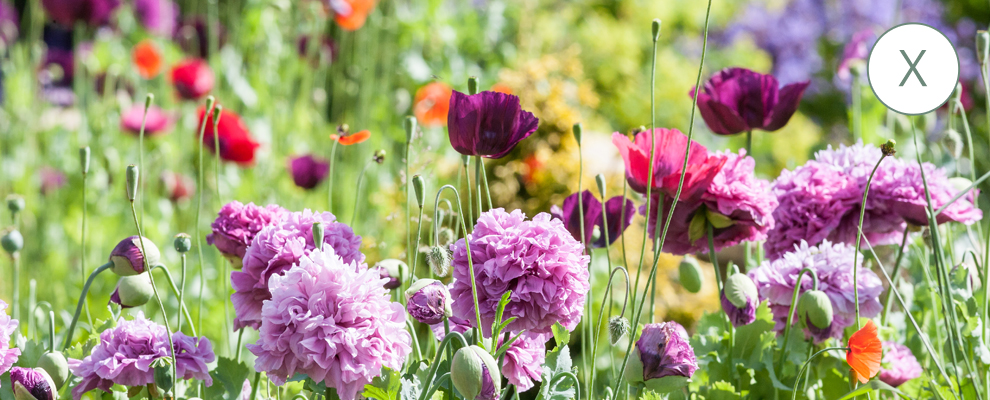
Mixed Farming
Level: QLS Level 3
Gain a solid understanding of the principles and practices of mixed livestock and crop production and:
- Receive the Certificate of Achievement at QLS Level 3
- Achieve the HCC Certificate
- Flexible home-study to fit your learning around your life
This course is suitable for those wishing to change to an agricultural career (especially if interested in mixed farming), those already working in the industry, and also leisure learners with a keen interest in farming.
Your first set of course materials will be sent to you when you enrol. You can start as soon as you want and progress through the course at your own pace, studying when and where you choose.
This flexibility makes it easy to fit learning around work and family commitments.
The extensive course materials have been developed by farming experts and are clear and straightforward, so your studying is easy and enjoyable. As you complete each lesson, your tutor will promptly return your marked assignment with constructive feedback and guidance. (You can also contact your tutor or the support team for help at any point during your studies.)
The course includes all the required study materials.
There is no formal examination. On successful completion you will be awarded an HCC Certificate and the Certificate of Achievement at QLS Level 3. You have 2 years to complete the course.
Lesson 1 Introduction – Principles of farming
- Making money from farming
- Measuring capital
- Sources of capital
- Sources of credit
- The different types of farming
- Livestock identification
- Livestock enterprises
- Some simple farming principles
- Maintenance of fertility
- Farming planning
- The professional help available to farming
- The future outlook
- The practice of sustainable farming
- Some general advice
- Principles of cropping
- The pattern of cropping in the british isles
- The composition of soils
- Soil types
- Cultivations
- Drainage
- Setting up a drainage scheme
- Irrigation
- Crops and plant growth
- Botany of the plant
- Classification of plants
- Plant growth
- The conservation of nitrogen
- Use of important plant nutrients
Lesson 2 – Principles of livestock management
PART ONE: ANATOMY, PHYSIOLOGY, BREEDING AND WELFARE
- Anatomy of livestock
- The systems of the animal body
- Breeding livestock
- Farm animal welfare
PART TWO: HEALTH AND FEEDING
- Signs of health in livestock
- Disease
- Immunity
- Notifiable diseases
- Parasites
- The feeding of livestock
- Constituents of food
- Principles of livestock rationing
- Food or feedingstuffs for farm animals
- Mineral and vitamin requirements of livestock
- Selection of foods and ME calculations
Lesson 3 – Principles of cropping
- Manures and fertilisers
- Fertilisers
- Application of fertilisers
- Crop protection
- Diseases of crops
- Fungicides
- Weeds and herbicides
- Pests of crops
- Examples of some important pests
- Seed
Lesson 4 – Grassland and forage crops
- Grasses and clovers
- Seed mixtures
- Special mixtures
- Seed rates
- Establishing leys
- Improvement of poor grassland
- Grassland output
- Fertilising grassland
- Making use of grass
- Grazing systems
- Silage
- Harvesting forage crops
- Hay-making
- Root crops
- Other Brassica crops
- Forage legumes
- Catch crops for forage
- Alternative forage crops
Lesson 5 – Arable crops
- Cereals
- Wheat
- Barley
- Oats
- Rye
- Cereal pests
- Harvesting of cereals
- Cereal seed production
- Potatoes
- Other arable crops
- Oilseed rape
- Field beans
- Peas
- Linseed
- Crops of minor importance
Lesson 6 – Management of cattle
- Dairy breeds
- Dual purpose breeds
- Breeds of beef cattle
- Continental breeds of beef cattle
- Rearing of cattle
- Calf stage
- Further rearing
- Rearing of dairy heifers
- Housing of calves
- Calf disorders
- Formulation of rations for growing cattle
- Diseases of cattle
- Management of calving
- Infertility
- Mastitis
- Metabolic diseases
- Bovine Spongiform Encephalopathy (BSE) or Mad Cow Disease
- Tuberculosis
- Johne’s disease
- Less common cattle diseases
- Some general advice
Lesson 7 – Management of dairy cattle
- Milk production
- Feeding the dairy cow
- The art of milking
Lesson 8 – Management of sheep
- Wool
- Basic facts on the physiology of the sheep
- Sheep names and terms
- Breeds
- Characteristics of the more important breeds of sheep
- The system of stratification
- Management of a breeding flock
- Early fat lamb production
- Artificial rearing of lambs
- Management of grazing sheep
- Common sheep diseases
Lesson 9 – Management of beef
- Points of a beefer
- Meat in supply and demand
- The beef carcase
- Sources of and trade in beef cattle
- Breeding of cattle
- Cattle weighing and recording
- Beef production systems
- Features to be considered in choosing a system
- Suckled calf production
- Finishing of suckled calves and stores
- Grass cereal beef
- 20–24-month grass beef
- 15-month grass cereal beef
- Intensive cereal beef
- Bull beef
- Maize silage beef
Lesson 10 – Management of pigs
- Types of pig required
- Marketing pigs
- Breeds and breeding
- Weaner production
- Feeding growing pigs
- Practical pigmanship
- Outdoor pigs
- Taking up pig farming
Upon successful completion you will receive; the Certificate of Achievement* at QLS Level 3. This course has been designed by The Horticultural Correspondence College to meet specific learners’ and/or employers’ requirements which cannot be satisfied through current regulated qualifications. The Quality Licence Scheme, endorses high-quality, non-regulated provision and training programmes.
You will also receive an HCC Certificate*, graded to show the standard you have reached. The HCC’s reputation means this can be highly regarded on a CV and, combined with your portfolio of coursework, is evidence of your achievements (whether you are applying for a job or a more advanced study course).
* Your certification will be issued once you have successfully completed your course and finished your course payments.
We are proud of our friendly, caring ethos and aim to do all we can to help you succeed.
Our tutors are all experienced, highly qualified and passionate about sharing their love of their subject. You can phone or email your tutor throughout the course – to ask questions, for advice, encouragement or to draw on their wealth of knowledge.
You can also contact the support team who are here to help you Monday to Friday, 9am to 5pm.
You do not need previous farming knowledge or experience to enrol on this course
If needed you have 2 years to complete the course. Many students are able to complete this course in approximately 6-12 months*.
*Timescales are approximate and depend upon application and motivation.
- Once you have successfully completed this course you could work on a farm, either self-employed or working for a farmer. You may be suitable for roles such as a general farm worker, herdsperson, shepherd or trainee assistant farm manager.
- You could progress to the following HCC courses:
Organic Arable Farming
Organic Livestock Farming
Tropical Agriculture
Sheep Farming
£62.50* per month for 6 months
(£30 admin fee included)
£60.71* per month for 7 months
(£30 admin fee included)
£60.71* per month for 7 months
(£30 admin fee included)
£59.37* per month for 8 months
(£30 admin fee included)
£59.37* per month for 8 months
(£30 admin fee included)
£58.33* per month for 9 months
(£30 admin fee included)
£56.81* per month for 11 months
(£30 admin fee included)
£60.41* per month for 12 months
(£30 admin fee included)
















